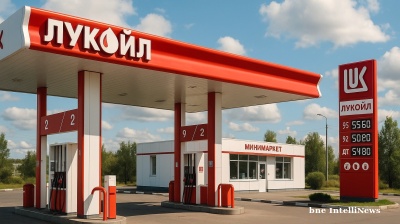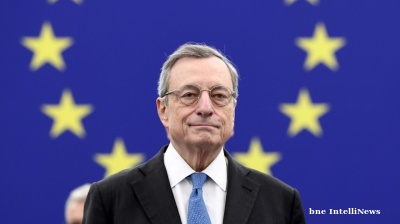Southeast European countries, including Romania, Bulgaria and Croatia, have announced significant increases in defence spending in response to the ongoing Russian war in Ukraine and heightened geopolitical tensions across the region. These moves align with Nato's broader efforts to bolster its eastern defences.
Across Southeast Europe, countries are responding to the shifting security environment by boosting their defence budgets and enhancing military readiness, driven by escalating tensions in Ukraine and concerns over the broader geopolitical landscape.
Romania and the US signed a $920mn direct loan agreement on September 25 under the $4bn Foreign Military Financing (FMF) scheme. According to the Romanian government and the US embassy in Bucharest, the loan will accelerate Romania’s defence modernisation and fund urgent procurements of US defence equipment and services. Additionally, the US government will provide $60mn in FMF grant funding.
Romania's Defence Minister Radu Oprea confirmed that $220mn of the $920mn loan will be allocated to Romarm, the state-owned defence company, to develop a centre for producing large-calibre ammunition. "This funding is a major support for the country's military modernisation," the Romanian government said in a statement.
Also as part of the country's defence upgrades, Romania will acquire 32 F-35 fighter jets under a $6.5bn deal, marking a significant leap in military capabilities. This purchase was approved by the US Department of State, which recently greenlighted the sale.
Romania borders Ukraine, which has been at war with Russia since February 2022, and several Russian drones have crashed in areas close to Ukraine’s Danube ports.
The Nato members forming the Bucharest Nine (B9) group met in Romania on September 18, calling for a "joint air defence" system to counter the growing threat posed by Russian drones. "This is a new reality that cannot be left disregarded," the group said in a joint statement. Romanian Defence Minister Angel Tilvar stressed the urgency of addressing "the repeated incursions of Russian drones and missiles into Nato airspace in Poland, Romania and Latvia."
Bulgaria, another Nato member, is also stepping up its defence. The US State Department recently approved the sale of over 300 Javelin missiles to Bulgaria for an estimated $114mn. This deal includes training, maintenance, and technical assistance. The Defence Security Cooperation Agency (DSCA) noted that the acquisition will bolster Bulgaria’s long-term defence capacity without altering the region's military balance. The Javelin Joint Venture, a collaboration between Lockheed Martin and RTX Corporation, will be the prime contractor for the sale.
In addition, Bulgaria's parliament has approved the purchase of an anti-aircraft missile system, IRIS-T SLM, at a cost of €182.1mn. Bulgaria has expressed interest in acquiring additional IRIS-T systems, potentially five SLM units and one long-range SLХ system.
Croatia, meanwhile, is also strengthening its military. On September 25, Croatian Defence Minister Ivan Anusic confirmed the country's acquisition of unmanned aerial vehicles as part of its defence upgrades, tied to its purchase of Rafale fighter jets. Croatia also secured a $390mn deal for High Mobility Artillery Rocket Systems (HIMARS) from the United States. According to the DSCA, the sale will improve Croatia’s ability to "deter current and future threats and support coalition operations."
Anusic has been vocal about Croatia's need to continue upgrading its defence capabilities in light of the Ukraine war and other global conflicts. As well as the broader geopolitical situation, there has also been an increase in defence spending by both Croatia and its neighbour and rival Serbia.
"Given the current geopolitical situation, it's evident we must continue upgrading our defence capabilities," Anusic said.
Additionally, Croatia is set to reintroduce mandatory military service, pending final approval, with preparations for training set to begin in 2025. Serbia’s President Aleksandar Vucic recently announced that Belgrade is also planning to reintroduce military service.
Features

US expands oil sanctions on Russia
US President Donald Trump imposed his first sanctions on Russia’s two largest oil companies on October 22, the state-owned Rosneft and the privately-owned Lukoil in the latest flip flop by the US president.

Draghi urges ‘pragmatic federalism’ as EU faces defeat in Ukraine and economic crises
The European Union must embrace “pragmatic federalism” to respond to mounting global and internal challenges, said former Italian prime minister Mario Draghi of Europe’s failure to face an accelerating slide into irrelevance.

US denies negotiating with China over Taiwan, as Beijing presses for reunification
Marco Rubio, the US Secretary of State, told reporters that the administration of Donald Trump is not contemplating any agreement that would compromise Taiwan’s status.

Asian economies weigh their options amid fears of over-reliance on Chinese rare-earths
Just how control over these critical minerals plays out will be a long fought battle lasting decades, and one that will increasingly define Asia’s industrial future.



